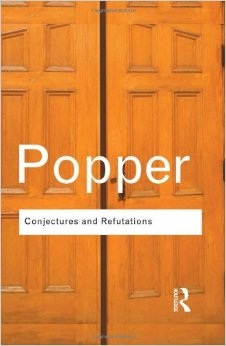It's always encouraging when someone who I generally consider to be very intelligent and well-informed says the exact things that I have either previously said or have been thinking. In this case, it's an honest and frank assessment of the situation in many major cities around the continent.
|
http://christophercantwell.com/2015/04/28/an-open-letter-to-baltimore-rioters/
It's always encouraging when someone who I generally consider to be very intelligent and well-informed says the exact things that I have either previously said or have been thinking. In this case, it's an honest and frank assessment of the situation in many major cities around the continent.
Not enough people who insist they are interested in freedom are willing to honestly and unabashedly address the issue of "what to do when faced with an adversary which possesses a monopoly on force". Cantwell, in his rhetoric at least, sets an example for anyone who wishes to consider themselves freedom-minded.
0 Comments
Today's resource suggestion is a little more involved than previous ones. Today's resource suggestion is Karl Popper's Conjectures and Refutations. This book primarily concerns itself with the problem of doing science from an epistemic standpoint. This may not seem to be too important to the project I have been engaged in with this blog, but to anyone who reads the book, you will likely see the connection very quickly. My post on Paradigmatic Awareness is, essentially, a synthesis of this work and another by Thomas S Kuhn, which will likely be another resource suggestion soon enough.
While Popper was primarily interested in the philosophy of science in this book, I believe his insights apply to all of epistemology, not just the study of the material world. As a classical liberal, Popper extends his epistemic reasoning out to his own version of social contract theory. I think that, while he had a good basis to work off of and an amazing intellect, he made the mistake that many classical liberals made: he forgot that the institutions he advocated for would never go away; where tolerance, as he imagined it, was only supposed to be implemented so long as it was practically useful to collective flourishing, it has become the monster that it is today... inspired by his own words. So, please read Conjectures and Refutations. It will help broaden your understanding of how one can say that they know what they know, how science as an exercise ought to be done, and reveal a great deal of the social philosophy that has gotten the western world into the trouble that it is in now. http://www.amazon.com/Conjectures-Refutations-Scientific-Knowledge-Routledge/dp/0415285941
Today's resource stands in lieu of my current blog post, as I'm a little behind schedule. Today is a podcast episode from Matt Walsh about what people deserve. It's kind of funny how I found this guy. A person I met in college randomly threw a tantrum on facebook saying, "if you value your immortal soul, don't listen to this guy." Knowing this particular person's general attitude towards the world, and the attitude that tends to accompany people who throw around the phrase "If you value your immortal soul...", I naturally went straight to the very thing I was told to avoid.
This instinct rarely disappoints me, and this was no exception. Matt Walsh is the only pundit I can stomach. His views on faith and society are rarely off, and when they are, it's only by a minor degree. He does tend to make some incorrect political statements, but he is on the right track, slowly becoming an anarchist as he witnesses the absurdity of the state. This particular episode, I think, does a great job of introducing the idea that what people think they deserve has nothing to do with reality. I don't believe anyone deserves anything, at all. If I absolutely had to say anyone deserved anything, it would be that they deserve to be consigned to the flames and then oblivion. We deserve nothingness, and we are fortunate that we do not receive our just desserts.
This particular podacst was made in response to the usual touchy-feely, irrational haters of Matt Walsh when he wrote this blog post a little while ago.
I was going to post a follow-up to yesterday's resource suggestion, but I wanted to share this first. This is the Story of Your Enslavement, as told by Stefan Molyneux. The video is short, sweet, and simple. There are a lot of details that are not addressed, but that's what you get for wanting to cover it in 13 minutes as opposed to a lifetime of literature. Simplicity aside, this is the truth, spoken directly and non-judgementally.
I do not endorse Molyneux, as a lot of what he says and does is utterly insane. However, about two thirds of what he says and half of what he does is right on the money. This video is spot-on.
The worst form of injustice is to attempt to make two unequal things equal. Today's resource is an essay that was published just last month by George Reisman. Unfortunately, nobody has produced a free copy of it yet, but you can get the kindle version for 99¢ on Amazon. It is a nice, short, easy read about why "equality of opportunity" is a dangerous lie. If you agree, this will help bolster your arguments for what is a very true and very unpopular position. If you disagree, I think you should read this essay and see what you think afterwards. http://www.amazon.com/gp/product/B00VW8RJ26/ref=as_li_qf_sp_asin_il_tl?ie=UTF8&camp=1789&creative=9325&creativeASIN=B00VW8RJ26&linkCode=as2&tag=thomacom-20&linkId=JU4HXR3HDEQ4ZXSX This article was recently featured in an interview with the author on the Tom Woods Show, in case you are too busy or poor to purchase and read the essay itself. I strongly recommend that conservatives at least listen to this interview, as it may change your mind. Not, towards the lefty "equality of results", but instead further away from that even more dangerous and gratuitous lie.
I hope to post some really good economics sources on here sometime soon, but I have to comb through what I've read and watched for some gems that are of a digestible scope. In the mean time, I present an interview about a movie that I'm excited for:
http://anarchast.com/front/2015/4/20/anarchast-ep-208-jimmy-morrison-the-bubble-film.html "My thesis is that the criteria by which individuals are deemed qualified or unqualified to become professionals involve not just technical knowledge as is generally assumed, but also attitude—in particular, attitude toward working within an assigned political and ideological framework. I contend, for example, that all tests of technical knowledge, such as the Graduate Record Examinations (GRE) or the Law School Admission Test (LSAT), are at the same time tests of attitude and that the examinations used to assess professional qualification are no exception. I consider in detail how the neutral-looking technical questions on such examinations probe the candidate's attitude. Another School Sucks Podcast on my resource list. Expect to see more in the future, too, this is a very valuable resource. This discussion sounds essentially like a discussion of how to use NVC in debates. I am still skeptical as to whether NVC has any value in text-only conversations like those on facebook, but they make a decent case for giving it a shot.
They also discuss the nature of popular debates, and how they are all discussions of statist policy, even when they are billed as scientific debates. And there's a good chunk of discussion concerning some very good self-help tools at the end. This was intended for posting yesterday, but real life interfered with my blogging life. I hope to post today's suggestion tonight, as scheduled. An excellent resource I read back in my communist days, Isaiah's Job, describes a very intelligent approach to populism and the reality that those seeking truth face. When I first read it, I was surprised that an evil capitalist could understand the human condition so well... and later calked it up to marketing skills. Now that I've come out the other side of that long, dark night that is communism, I have a renewed appreciation for Albert Nock and the influence he has had on economics. Without Nock, we may not have had Rothbard. I think this is my favorite essay by Nock and it deserves a good read, especially if someone is trying to understand why I say what I do on facebook, and write what I write here, especially since it looks like nobody is listening. https://mises.org/library/isaiahs-job "Tell them what a worthless lot they are. Tell them what is wrong, and why and what is going to happen unless they have a change of heart and straighten up. Don't mince matters. Make it clear that they are positively down to their last chance. Give it to them good and strong and keep on giving it to them. I suppose perhaps I ought to tell you that it won't do any good. The official class and their intelligentsia will turn up their noses at you and the masses will not even listen. They will all keep on in their own ways until they carry everything down to destruction, and you will probably be lucky if you get out with your life." I recently finished reading “Nonviolent Communication: A Language of Life -- Second 2nd Edition”. I was very resistant to giving NVC a chance. My introduction to it was some people on Free Talk Live talking about it, and it sounded like some sort of cult-y, Scientology-like, “if we all learn to pray and talk with hippie vibes, the world will be healed”. Hearing about it from Stephan Molyneux next sealed the deal (he is a de-facto cult leader). Satya Nadella made this book required reading for Microsoft execs, which made me wonder if this was becoming a mainstream fad and made me even more resistant to the idea. Also, the name itself seemed off-putting to me. I figured (and still do) that any language that didn't consist of veiled or direct threats is, by default, non-violent.
Then, certain people that I don't always agree with but always respect their opinion and degree of thought it takes for them to develop an opinion re-introduced me to the idea of NVC. Between Brian Sovryn explaining that it has less to do with non-violence, and more to do with empathy, I started to reconsider. Seeing Adam Kokesh put it to work on Christopher Cantwell, of all people, sealed the deal. I saw the way that Kokesh (someone whom I've always been suspicious of) managed to basically shut down the angry part of Cantwell's brain and get a begrudging admission that NVC may be an effective tool. I still was very, very suspicious of the whole idea in general, but I knew I had to at least research it before dismissing it. I bought the book on Amazon for something like $15 and read it in a few weeks, taking it a few pages at a time. The book is easy to read, short and sweet, and gives actionable suggestions. While the methods of NVC aren't useful in every circumstance, (philosophical discourse, for instance), they are incredibly effective at smoothing out day-to-day interactions with people, especially adversarial people. I am, by no means, a peaceful parent, but I'm looking into that, as well. I can say this much, though, after giving NVC a shot, I've gotten incredible results with my middle child. It used to seem like her sole purpose in life was to antagonize me, but we're making excellent progress in getting along, thanks to Rosenberg. The way I understand NVC to operate is thus: We, in our culture today, are addicted to counter-productive emotions. We have developed a habit of being outraged at things. The4 internet has proven to be instrumental in fueling this addiction to outrage, as there's always something out there for anyone to be mad at. The way addictions work is in cycles. Stimulus, reaction, dopamine/adrenaline/etc, brain-drugs wear off, repeat. In the case of outrage, something touches on an unresolved need or desire within us, we get mad and lash out at at whoever or whatever touched on that nerve, we get a release of feel-good drugs in our brains, and we feel good about being miserable, repeat ad-infinitum. What NVC seems to do is interject itself between the stimulus and reaction and closes that loop prematurely. This is how addictions are broken, how good habits are formed, and how someone can talk down a 280 lb thug before getting their face punched in. It is also a method of communicating that, in closing that loop prematurely, leads people into uncharted areas of their own human mental experience and opens them up to actually exploring alternative ways of seeing the world, which is useful when discussing crucial matters such as human flourishing. As it stands now, I understand NVC in an almost entirely scholastic sense, but my early efforts at putting it into practice have already made family and work far more manageable. I recommend everyone read this book. I don't think it's some sort of silver-bullet to eliminating the state, as some do, but I do believe that this is a tool set that is irreplaceable if one wants to flourish in a post-state society. |
Archives
October 2015
Categories
All
|





 RSS Feed
RSS Feed
